The 1 February marks five years since the United Kingdom formally left the European Union. It is the first — and only — member state to do so.
Starting from the referendum that voted for Leave in 2016, it took nearly four years for the two sides to agree to a withdrawal deal. The period was tumultuous for British politics, beginning with the resignation of then Prime Minister David Cameron, after the referendum he called for did not go the way he planned.
The country went through two more Conservative prime ministers to "get Brexit done” and another three since. Last year, Labour returned to power for the first time since 2010, promising a "reset” of UK-EU relations. Aside from defence cooperation, however, Prime Minister Keir Starmer has struggled to articulate what that means.
In February, he plans to attend an EU summit — the first of its kind since Brexit negotiations. Despite the stated interest in warmer ties with the EU, Starmer has been reluctant to acquiesce to EU terms.
Most of all, the bloc wants a youth mobility scheme, which would allow British and EU youth to live, work and study in the other area for a limited time. Concerned about migration hawks in parliament, Labour has said it currently has “no plans” for such a scheme, nor will it return to the freedom of movement of its EU days.
Such a scheme already exists with 13 non-EU countries, including Australia, Canada, Japan, Iceland and India.
A multi-country opinion poll by the European Council on Foreign Relations (ECFR) reflected mixed feelings about the future of the UK-EU relationship, based on views from both publics. The sentiment suggests that, five years later, the stressful Brexit legacy lives on. Its half-decade anniversary makes for an appropriate time for The Parliament to take stock of significant developments since.
January 2020
The UK formally leaves the EU on 31 January, making it a third country – that is, outside the European Union and European Economic Area. The date marks the start of the transition period outlined in the EU-UK Withdrawal Agreement, which goes until the end of the year. In that time, EU law still applies to the UK.
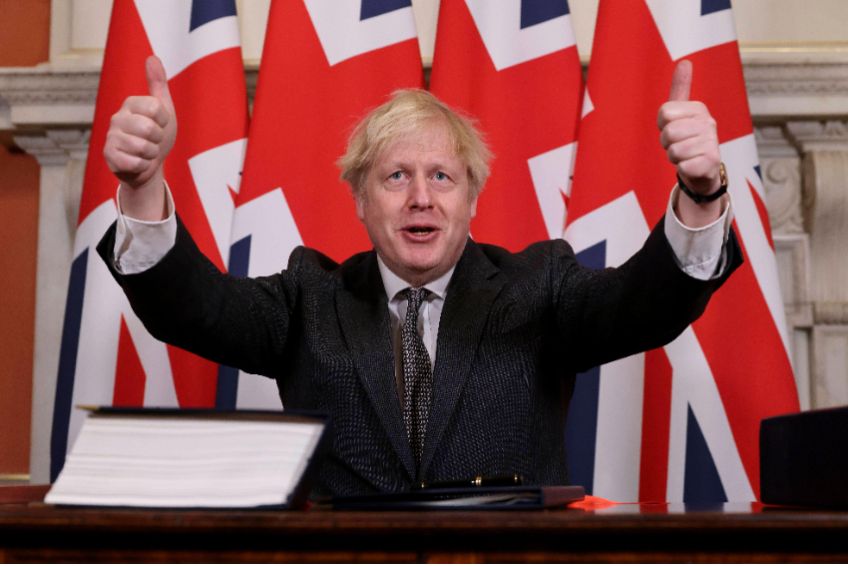
December 2020
By the close of the transition period, the COVID-19 pandemic has fully gripped Europe along with the rest of the world. The UK becomes the first country anywhere to approve the Pfizer/BioNTech vaccine for emergency use. The approval is based on existing EU regulations, rather than ones outlined by Brexit.
On Christmas Eve, the two sides conclude the Trade and Cooperation Agreement (TCA), which governs the post-Brexit relationship between the EU and the UK. The TCA sets out rules on zero tariffs and quotas, safeguarding data protection and privacy, wholesale energy markets and migration.
Come New Year's, the transition period ends. The UK is fully outside the single market and customs union.
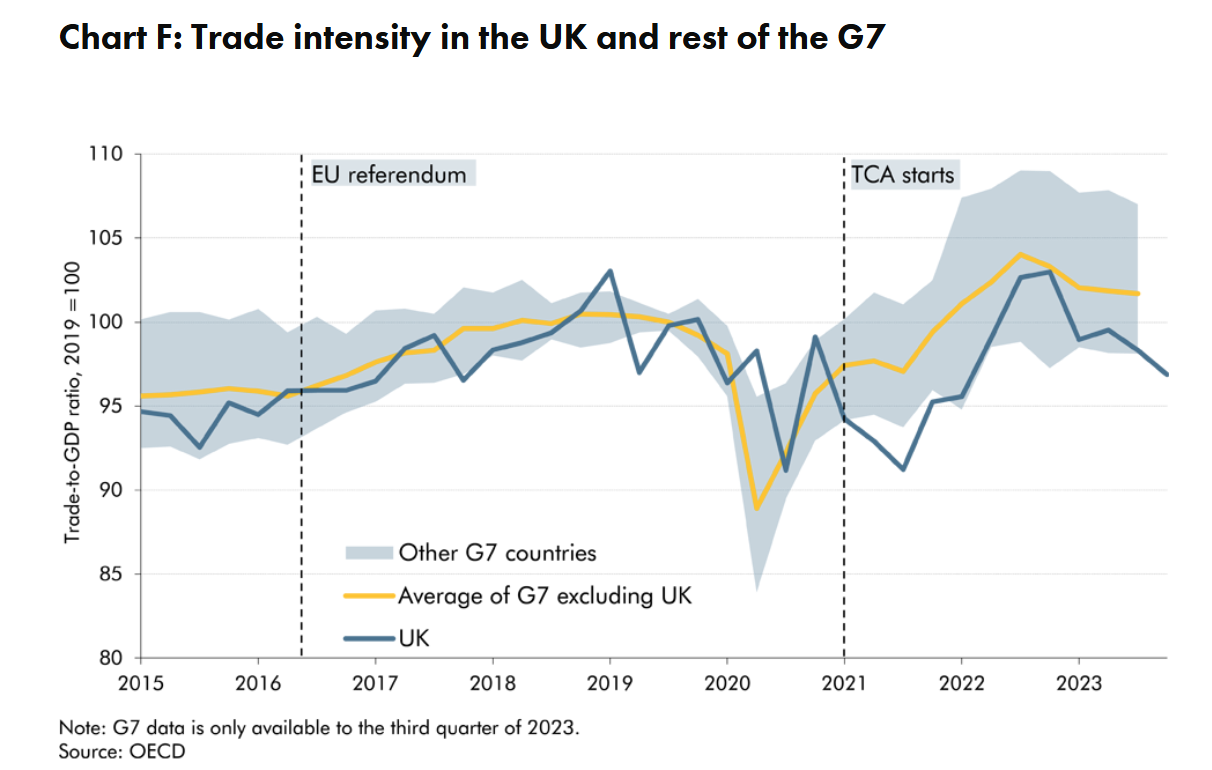
January 2021
To reduce the UK's reliance on low-paid workers from overseas, its government adopts a points-based immigration system similar to one used in Australia. It is supposed to treat EU and non-EU immigrants similarly, based on skills, language proficiency and family ties.
The Office for National Statistics (ONS) estimates by June 2021, 3.4 million EU citizens are living in the UK. Brexit means they no longer have an automatic right to live and work in the UK — and vice versa.
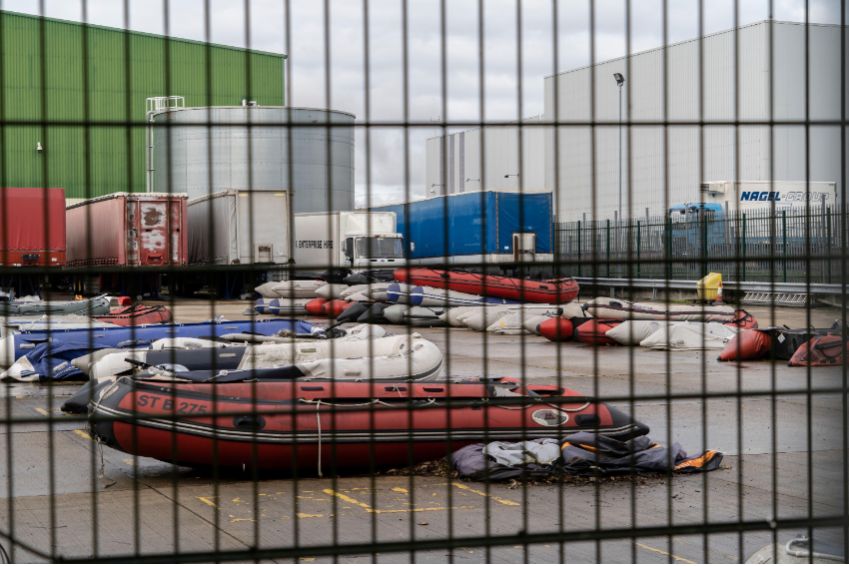
March 2021
The Northern Ireland Protocol is fully implemented, causing significant political and economic stress. Brexit puts the Good Friday Agreement at risk, which was signed in 1998 to bring peace to Northern Ireland, by hardening the border between Northern Ireland, which is part of the UK, and the Republic of Ireland, which is part of the EU.
Originally drawn up to protect the EU’s single market after Brexit and prevent a hard border between the two Irelands, the Northern Ireland Protocol proves unpopular with Northern Ireland’s unionists. That's because it allows Northern Ireland to remain in the EU's single market, while the rest of the UK is not.
To address opponents’ criticisms, the NIP is ditched in favour of the Windsor Framework in 2023. It is meant to cut customs red tape, equalise certain tax rules across the UK and give Northern Irish lawmakers more of a say over the future of trade between the two.
COVID-19 vaccine exports, many of which are produced in the UK, get caught up in the trade tensions. The EU calls on the UK to engage in “openness and reciprocity.”
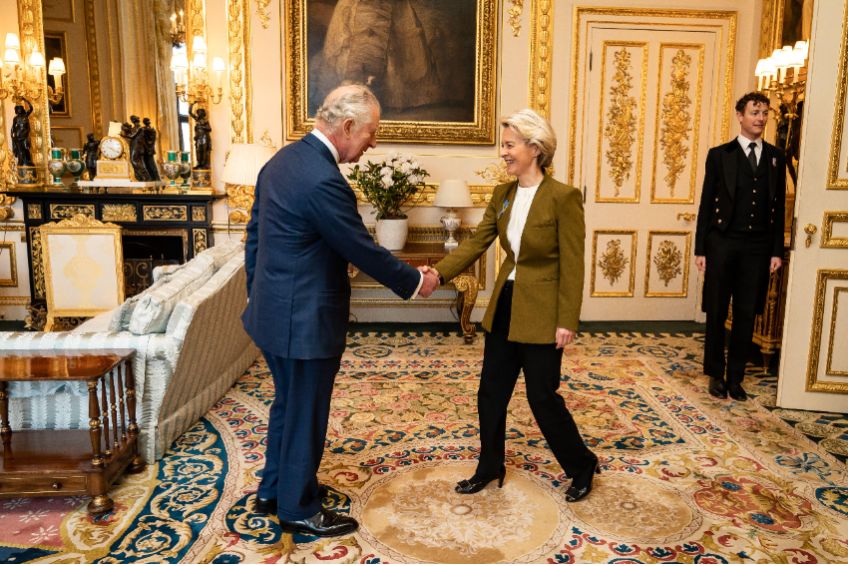
June 2021
The UK signs a free trade agreement with Australia — its first major deal of this kind since leaving the EU. British farmers worry about Australian beef competing with their own, while the government says the deal will unlock £10.4bn in additional trade as well as act as a template for more free trade with other countries, especially the US.
September 2021
The UK, Australian and US governments take the EU by surprise by announcing a trilateral security partnership, known as AUKUS. The deal swaps French submarines for British and American technology for Australian operations, outraging the French. In addition to helping the UK flex its military muscle at the EU's expense, AUKUS shores up the Anglo alliance in the Indo-Pacific against growing Chinese influence.
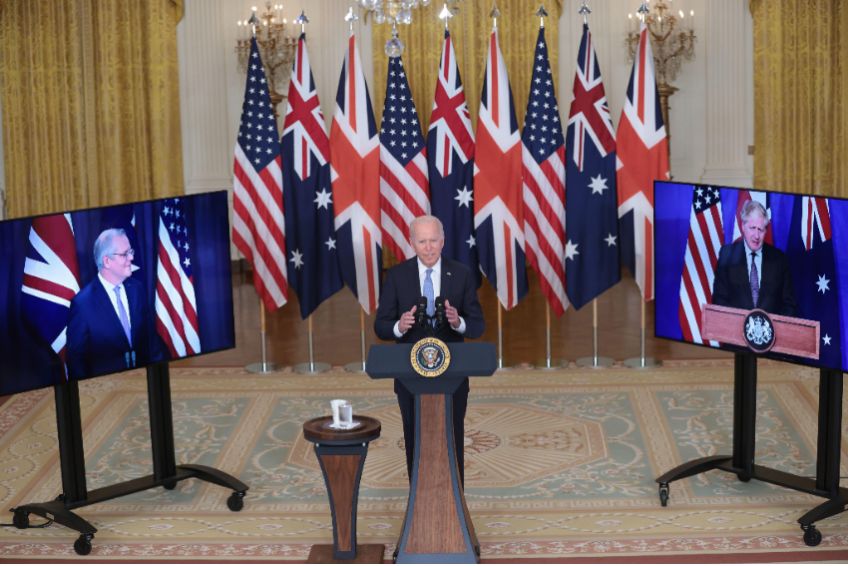
November 2021
On 24 November, 27 people die while trying to cross the English Channel from France to England. The incident remains the deadliest of its kind since the UK's EU withdrawal. The boat capsizes while attempting to reach the UK from France and reignites public debate over these kinds of migrant crossings.
An inquiry finds that the victims made no less than 18 emergency calls to French authorities. The report implied that both the UK and France expected the other to respond to the call for help. Negotiations between the two sides over controlling such crossings are ongoing.
February 2022
Russia launches its full-scale invasion of Ukraine, marking a turning point in UK-EU relations, particularly regarding common defence and sanctioning Russia. To date, the UK ranks 12th in Ukraine aid, as a per cent of GDP, ahead of EU powers such as France and Germany.

April 2022
The Conservative government, led by Boris Johnson, proposes a new migration bill that would send asylum seekers to Rwanda for external processing. The bill marks the next step in defining the UK's own policies on migration since its divorce from the EU.
Still, the European Court of Human Rights gets to have a say and, facing legal hurdles, the Labour government cancels the Rwanda plan after it wins the 2024 general election. No migrants get deported under the scheme.
October 2022
Liz Truss resigns as prime minister after just six weeks in office. Her critics mock her by comparing her tenure to the shelf life of a head of lettuce. Truss campaigned on a platform of a "low-tax, high-growth economy" that would take advantage of the freedoms of Brexit. But her £45 billion package of unfunded tax cuts led to a collapse of UK markets, a major hit to the British pound and a loss in confidence from her party.
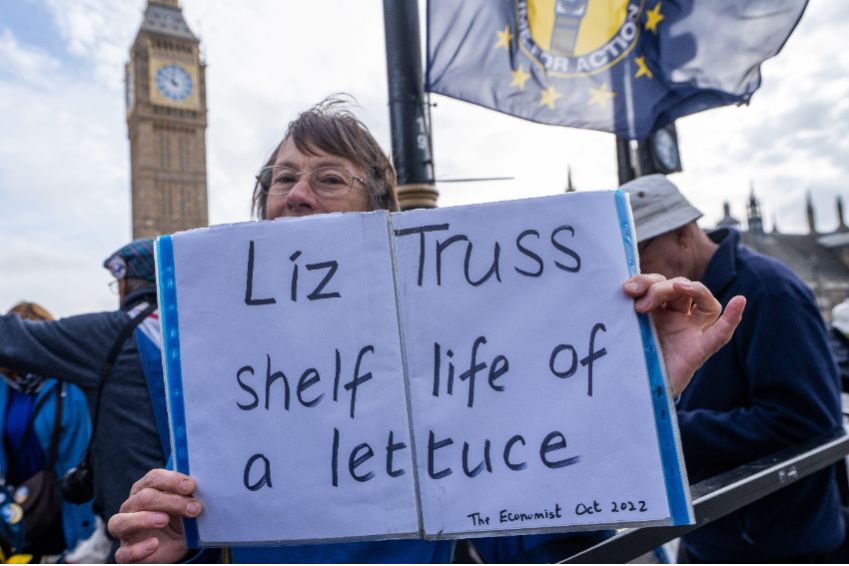
June 2023
The European Council authorises the European Commission, the executive arm of the European Union, to open negotiations with the UK on a supplementary agreement to the TCA.
The agreement is the first of its kind between the EU and a third country, and centres around allowing EU competition law and the UK Competition and Markets Authority (CMA) to cooperate directly in competition investigations.
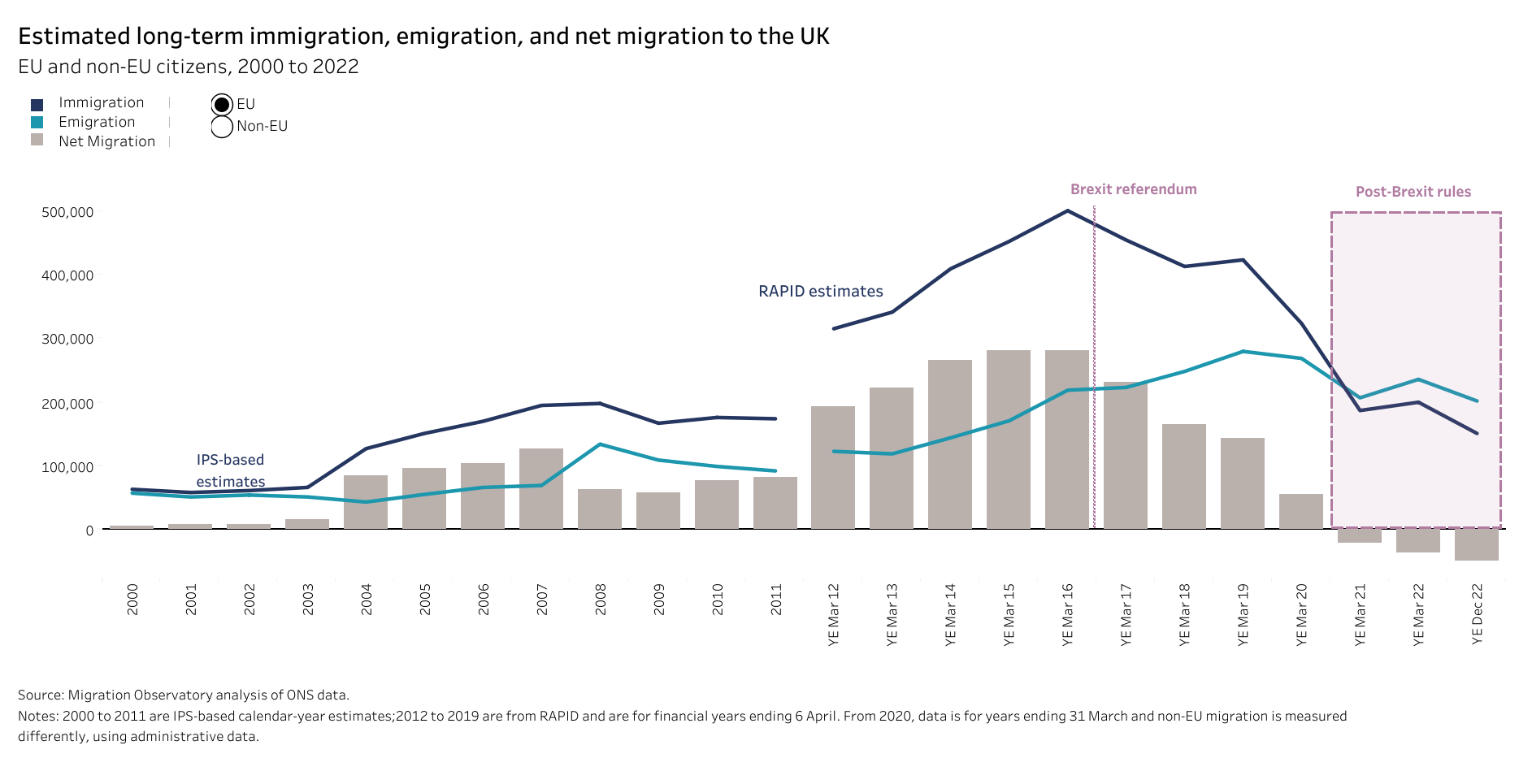
November 2023
The UK becomes part of Horizon Europe, the EU’s Research and Innovation Programme, and Copernicus, the earth observation component of the EU’s space programme.
London agrees to contribute around €2.4 billion per year to the EU budget for its participation in Horizon Europe, and around €154 million for participation in Copernicus. It means the UK and the EU will be able to work together on issues such as climate change, health and digital transformation.
February 2024
The UK’s migration agencies and Frontex, the EU Border and Coast Guard Agency, conclude a working agreement to work together to combat smuggling, human trafficking and irregular immigration through the exchange of intelligence, expertise and personnel.
April 2024
In an interview with The Sun newspaper, Prime Minister Rishi Sunak hints that the UK could leave the European Convention on Human Rights (ECHR) to push through the government’s Rwanda bill. The sentiment echoes those of earlier Conservative prime ministers.
Such a withdrawal would mean that those seeking asylum would lose many of their human rights protections guaranteed under the ECHR, such as right to life, prohibition of torture, and right to a fair trial.
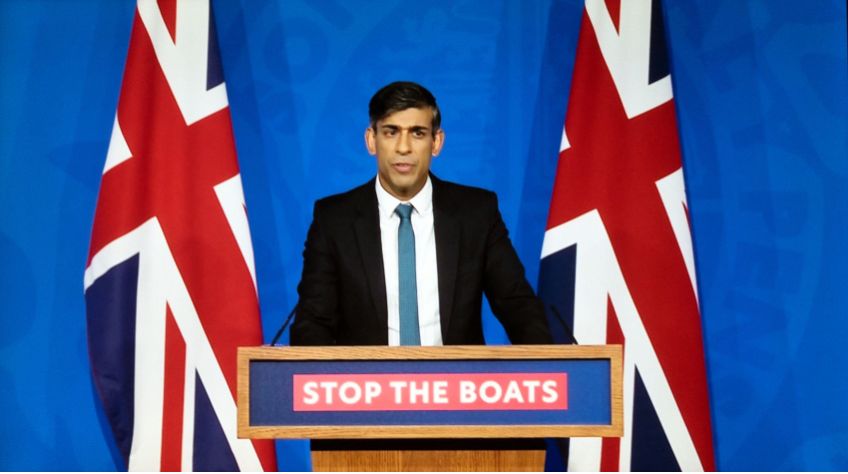
In the same month, more talks take place between the UK and the EU on the future of Gibraltar. Gibraltar is a British overseas territory on the southern tip of the Iberian peninsula, where it shares a border with Spain. It has been ruled by Britain since 1713, but self-governs in all areas except defence and foreign policy.
Spain has repeatedly claimed sovereignty over the territory, but Gibraltar's constitution prohibits that without the consent of those living there. Most voters on Gibraltar voted to remain in the EU.
July 2024
Keir Starmer is elected prime minister, returning Labour to UK government for the first time since 2010. He promises to “reset" relations with the EU. Despite a landslide victory, the nationalist Reform Party, led by top Brexit talking head Nigel Farage, picks up four seats in Parliament. That includes one for Farage himself, marking his first electoral victory after several failed attempts.
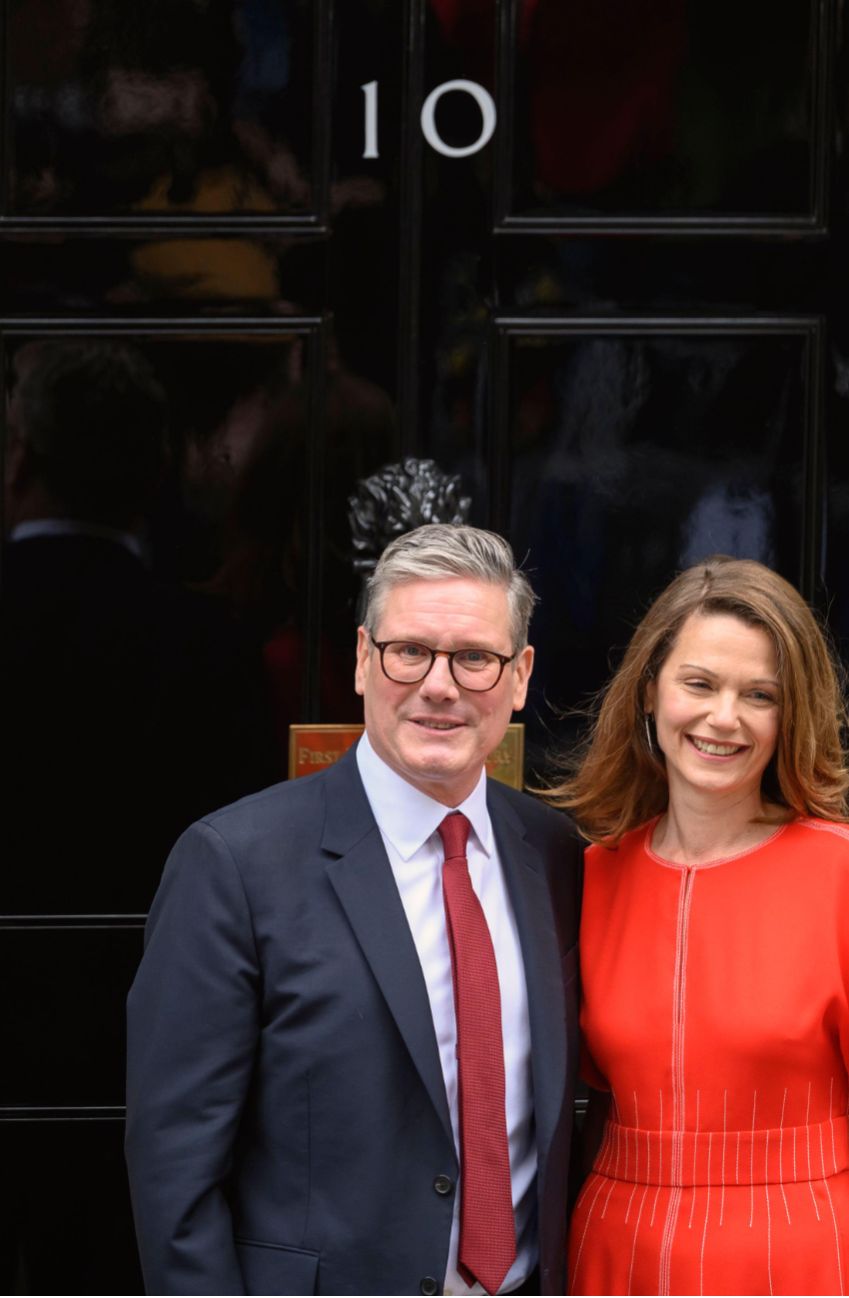
January 2025
International travellers, including from the US, Canada, Australia and European states need to register for an Electronic Travel Authorisation (ETA) before entering the UK. The scheme was previously only applicable to seven Middle Eastern countries.
The EU is planning a reciprocal measure for UK residents.

Sign up to The Parliament's weekly newsletter
Every Friday our editorial team goes behind the headlines to offer insight and analysis on the key stories driving the EU agenda. Subscribe for free here.